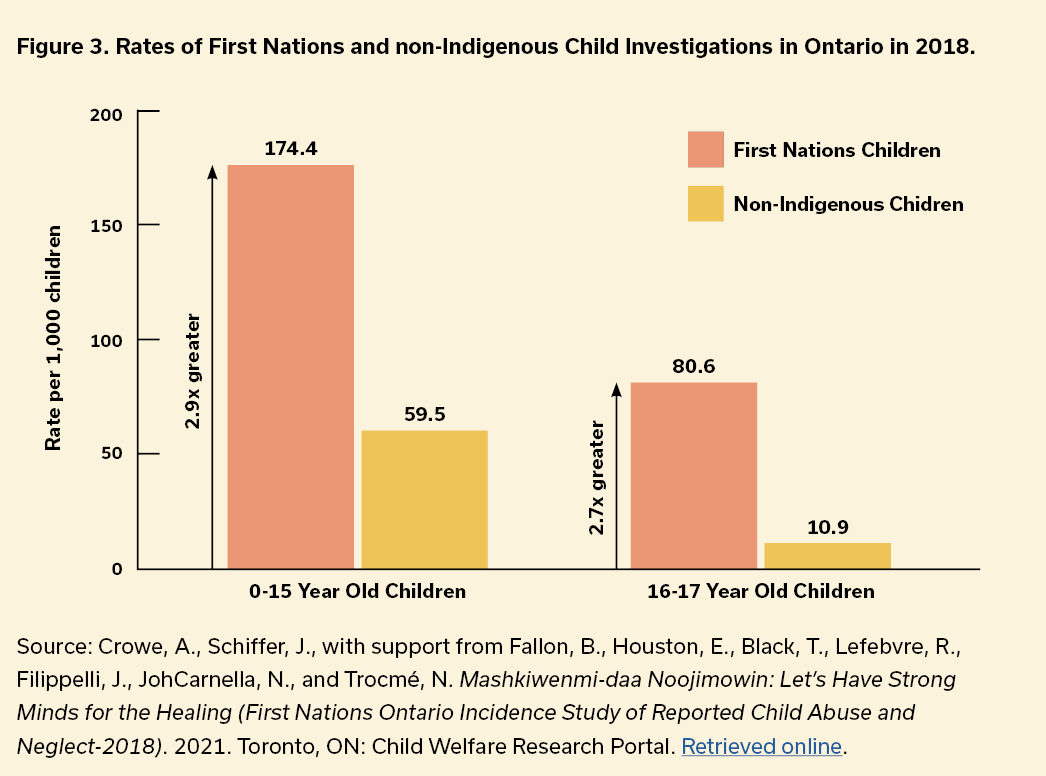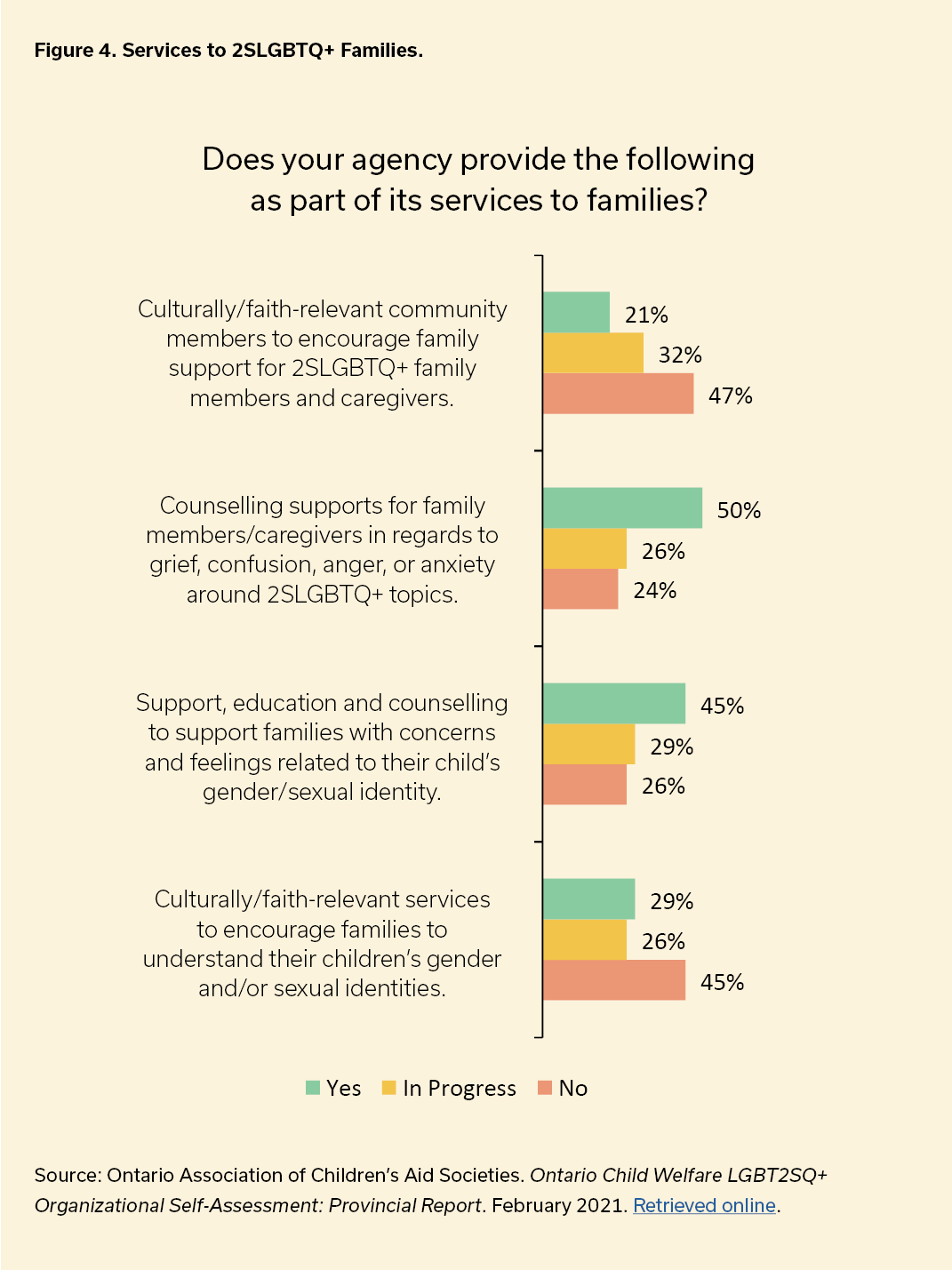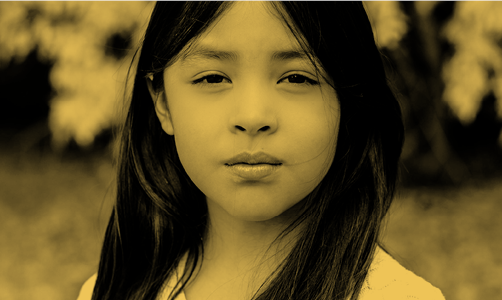
“Many Indigenous children and families will be hurting more than ever now that we’ve uncovered mass graves of residential schools. Please prioritize access to supports for Indigenous youth and families.”
– Anonymous Youth
The Ontario child welfare sector continues to prioritize reconciliation and equity to support better service outcomes for all children, youth, and families. And yet, service gaps continue to exist, and intersectional, marginalized communities continue to face risks, harm, and poor outcomes.
 The current data is clear that there is much work to be done to address issues of disproportionality and disparity for First Nations, Métis, and Inuit children, youth, and families. Despite the recent settlement announcement from the Federal government, many First Nations, Métis, and Inuit children, youth, and families continue to be served off-reserve by both non-Indigenous Children’s Aid Societies and Indigenous Child and Family Well-Being Agencies. These organizations need adequate resources to ensure they can provide accessible, culturally appropriate services and supports.
The current data is clear that there is much work to be done to address issues of disproportionality and disparity for First Nations, Métis, and Inuit children, youth, and families. Despite the recent settlement announcement from the Federal government, many First Nations, Métis, and Inuit children, youth, and families continue to be served off-reserve by both non-Indigenous Children’s Aid Societies and Indigenous Child and Family Well-Being Agencies. These organizations need adequate resources to ensure they can provide accessible, culturally appropriate services and supports.
The COVID-19 pandemic continues to reveal the structural and systemic inequities in Ontario communities. We commend the current government’s recent announcement in investments to support 2SLGBTQ+ children and youth with child welfare involvement, given that young people from these communities have faced increased social isolation and a heightened risk of self-harm or suicide over the last two years. We also commend the government’s decision to fund the One Vision One Voice (OVOV) program on an ongoing basis and to prioritize dismantling anti-Black racism and addressing the overrepresentation of African Canadians in child welfare. The Ontario child welfare sector is committed to implementing the Race Equity Practices and supporting initiatives that promote better outcomes for Black children, youth, and families.
We also commend the government’s decision to fund the One Vision One Voice (OVOV) program on an ongoing basis and to prioritize dismantling anti-Black racism and addressing the overrepresentation of African Canadians in child welfare. The Ontario child welfare sector is committed to implementing the Race Equity Practices and supporting initiatives that promote better outcomes for Black children, youth, and families.
Initiatives such as these can serve as models for the types of community-informed and led programs that need to be invested in. There is an opportunity to pilot and fund similar projects that can address the service gaps and unique needs of marginalized communities. Funded year-over-year approaches will help to support new interventions that address overrepresentation.
OACAS urges all parties to consider a consistent, funded approach to reconciliation and equity, diversity, and inclusion to improve services and supports, but also to integrate accountability measures that centre reconciliation and equitable practices into all aspects of child welfare work and directly link them to improved outcomes.
To learn more about the child welfare sector’s other election priorities, see:
